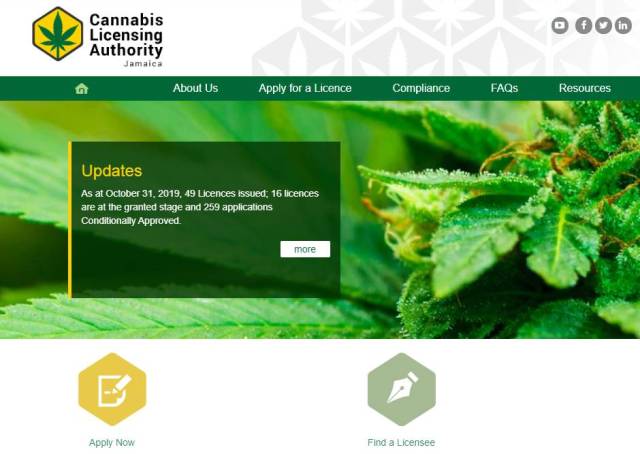
At the end of November 2019, the Trinidad and Tobago government unveiled legislation aimed at making it the latest Caribbean nation to tap into the growing global medical marijuana industry (cannabis-based drugs that tackle inflammation, epileptic seizures and pain).
So where is the Caribbean getting high on medical cannabis? Here’s a round-up of the facts from Caribbean Intelligence:
- T&T’s move comes in the form of two marijuana reform bills. One sets up the framework for the legalisation of marijuana production and use for medical and religious purposes, while the other bill will decriminalise low-level cannabis possession.
- In laying the draft legislation in parliament, Trinidad’s Attorney General, Faris al-Rawi, said that the decriminalisation of the possession of small amounts of marijuana (30g or less) would reduce the prison population and free up law enforcement resources to go after serious crimes. At the same time, a new government regulatory agency would be responsible for licensing the industry from cultivation to export.
- The Attorney General told parliament that the government “after significant research, wide stakeholder consultation and careful legislative scrutiny is of the firm view that it is the correct time to amend the Dangerous Drugs Act and to cause the strict licensing and regulation of the research, cultivation, supply and commercialisation of marijuana through the establishment of a Cannabis Control Authority”.
- The changes are similar to moves already made in Jamaica four years ago and developments this year in Barbados to enter the global medical cannabis industry, which is valued at $US150bn a year. Jamaica, which introduced its legislative changes in 2015, has been far ahead of the game in the Caribbean region. This year, it partnered with the Harvard International Phytomedicines and Medical Cannabis Institute (HIPI) to work on ways to make the island even more competitive in the global cannabis industry.
- This summer, Barbados has been hearing public and business views this year on its Medicinal Cannabis Industry Bill (2019). Barbados has a model similar to the one being pursued by Trinidad, which ensures that nationals must own a percentage of any medicinal cannabis ventures seeking a licence.
- St Kitts & Nevis established a National Marijuana Commission in the summer to look at a phased approach into the industry, while Antigua & Barbuda set up its Medicinal Cannabis Authority in the spring.
- The Caribbean initiatives are in line with growing developments in the medical cannabis industry in various US states and in Canada. In November 2019, the Judiciary Committee of the US Congress voted for a cannabis legislation bill. The Marijuana Opportunity Reinvestment and Expungement (MORE) Act of 2019 will now have to face debate in both the US House of Representatives and the Senate.
- Looking at the medical benefits of the most well-known cannabis medicine, CBD (cannabidiol), financial and economic news website RTT said: “The marijuana industry is rapidly transiting out of the black market and turning into a mainstream economic juggernaut.”
- International Policy Digest said: “The legalisation of marijuana and its derivatives, like CBD, is a complex issue as several countries around the world have, to differing degrees, legalised it, including Brazil, the Netherlands, Uruguay, in addition to various states throughout the United States. Medicinal CBD is a particularly interesting and growing industry.”
- It added: “Without a doubt, there is still a cultural taboo regarding cannabis, which will continue to influence how patients and doctors alike regard CBD for medicinal usage. However, there is an ongoing tendency towards accepting CBD as a valid alternative for pain relief and even, potentially, to help treat certain diseases. “The fact that several Latin American and Caribbean governments are introducing, and even passing, the legalisation of cannabidiol for medicinal purposes is a strong sign that this trend is here to stay.”
![]()